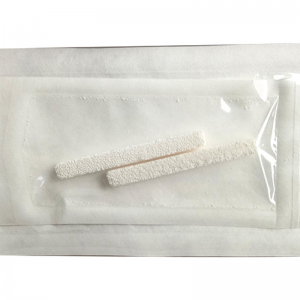Bone Cement
Acceptance: OEM/ODM, Trade, Wholesale, Regional Agency,
Payment: T/T, PayPal
Sichuan Chenanhui Tehnology Co., Ltd.is a supplier of orthopedic implants and orthopedic instruments and is engaged in selling them, owns its manufacturing factories in China, which sells and manufactures internal fixation implants Any inquiries we are happy to reply. Please choose Sichuan Chenanhui, and our services will definitely give you satisfaction.Is bone cement safe?
Bone cement is a safe and effective orthopedic material, but it requires professional doctors to operate and evaluate. Its safety is reflected in the following aspects:
Good biocompatibility of materials: The main component of bone cement is polymethyl methacrylate, which has been widely used in the medical field and has extremely high biocompatibility. Generally, it will not cause rejection reactions like other materials after being implanted into the human body.
Safe clinical application: Doctors will assess the patient's physical condition before surgery to determine whether bone cement is suitable. During surgery, bone cement is used strictly in accordance with the operating specifications, and the injection volume and speed are controlled to reduce the occurrence of complications.

Is bone cement permanent?

The scientific name of bone cement is bone cement, which is mainly used to fix artificial joints. It has good stability but is not permanent and will be affected by various factors. For example, the physiological environment of the human body (metabolism, corrosive lamp of body fluids), the repeated stress of daily activities on the implant site, and the aging of the bone cement itself, etc., may wear, degrade or loosen over time.
However, apart from the individual differences between different patients, the service life of bone cement can usually reach 10-20 years. Therefore, after the recovery of surgery, it is also necessary to follow the doctor's advice and regularly review the implant site.
What is the side effect of cement?
Bone cement usually has the following hidden dangers after implantation:
Allergic reaction: Some patients may have allergic reactions to certain components in bone cement, with symptoms such as rash, itching and difficulty breathing.
Cardiovascular reaction: When injecting bone cement, it may cause cardiovascular problems such as decreased blood pressure and arrhythmia. The risk is higher for patients with poor cardiovascular function.
Bone cement penetration: It may penetrate into surrounding tissues, compress nerves and vascular structures, and cause adverse consequences such as pain and limb numbness.
Infection: The injection of bone cement increases the possibility of infection at the surgical site. Once infection occurs, treatment is relatively complicated.
In view of the risk of side effects of bone cement, doctors will conduct a comprehensive assessment of patients before surgery. Therefore, in actual surgery, most of the risks can be avoided.




























